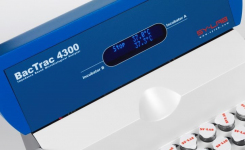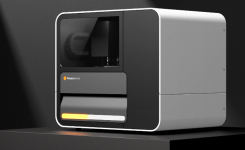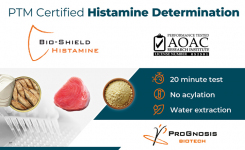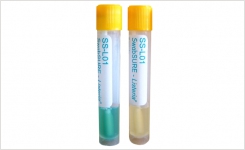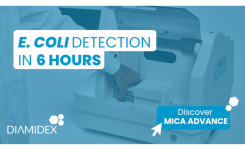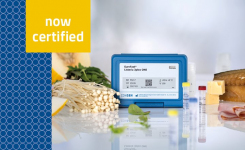| Gulf Coast Regional Blood Center intercepts unit of donated blood with confirmed West Nile virus infection
Roche Diagnostics, the world's leading provider of nucleic acid-based blood screening products, announced today that its TaqScreen West Nile Virus Test has successfully identified a unit of blood with confirmed West Nile virus infection. The infected blood was intercepted last week at Gulf Coast Regional Blood Center in Houston, Texas, one of the 11 clinical trial sites evaluating Roche's new system. This marks the first instance of human West Nile virus infection reported in the United States in 2003.
West Nile virus is a mosquito-borne virus that can cause life-threatening illness and death. An estimated 80% of people infected with West Nile virus never show any signs of illness. Nearly all of the remaining 20% experience only mild flu-like symptoms. About one in 150 people, however, especially the elderly or those with weakened immune systems, develop severe illness from infection with West Nile virus, including potentially fatal meningitis and encephalitis (swelling of the brain and lining around the brain).
"People who receive transfusion of blood or blood products may be quite sick and more susceptible to the serious and life threatening complications that can arise from West Nile virus infection," noted Dr. Susan Rossmann, M.D., Ph.D., Medical Director at Gulf Coast Regional Blood Center. "We think Roche's test, designed to detect West Nile virus and other members of the potentially deadly Japanese Encephalitis virus group, will help us deliver the safest possible blood supply to the hospitals and patients who rely on us each day."
Gulf Coast Regional Blood Center supplies more than 2,000 units of blood each day (nearly 750,000 each year) to more than 220 hospitals in Texas, including many that provide specialized care to patients from around the country and around the globe. The site began screening newly donated blood for West Nile virus on June 18, almost two weeks before the US Food and Drug Administration's requested July 1 start date.
"A single unit of blood or the products derived from it can improve life for several different patients," said Richard Thayer, Vice President of Blood Screening at Roche Molecular Diagnostics, the business area of Roche responsible for developing the TaqScreen West Nile Virus Test. "At this time when nucleic acid testing is setting new standards, we are proud to have worked closely with the FDA and our clinical trial sites to deliver a test with next-generation automation, broad detection capabilities, and ease of use."
With the TaqScreen West Nile Virus Test, Roche introduced the first North American nucleic acid blood screening system to fully automate specimen processing, amplification, and detection, important features for testing sites trying to keep up with increased screening requirements. Roche created the test in less than nine months to address concerns expressed last September by the US Food and Drug Administration and Centers for Disease Control and Prevention (CDC) about the potential for an increase in transfusion-related West Nile virus infections during the 2003 mosquito season. The test uses Roche's highly sensitive polymerase chain reaction technology, the world's leading nucleic acid technology, to detect the genetic material of the virus itself, in blood donated by people who may feel fine.
In the United States, a total of 11 clinical trial sites will test blood from a network of more than 100 donation centers. In Canada, as part of a separate clinical trial, three testing sites will use Roche's TaqScreen West Nile Virus Test to screen the entire Canadian blood supply.
TaqScreen, COBAS, AmpliScreen, and AmpliNAT are trademarks of a Member of the Roche Group.
|






